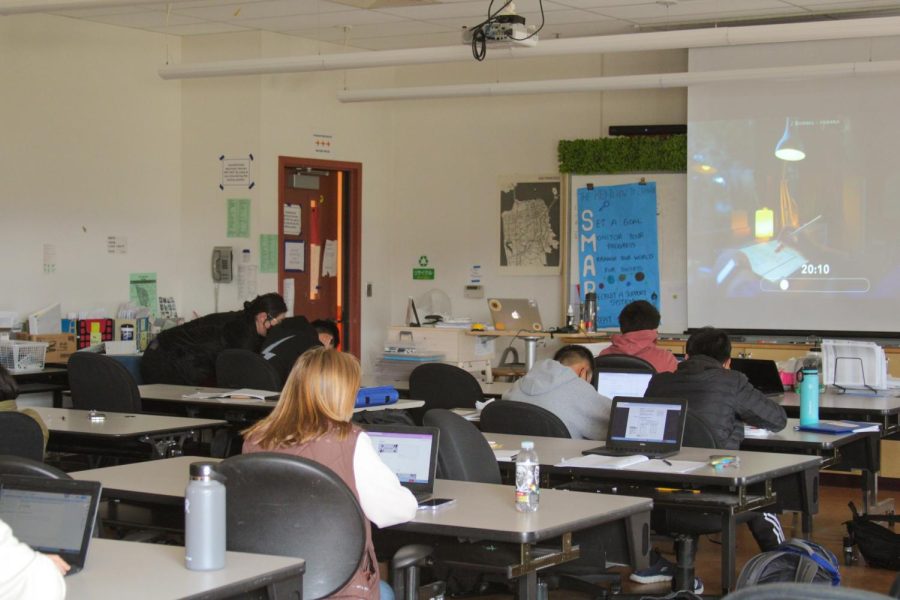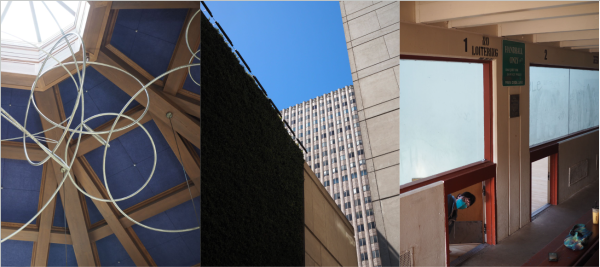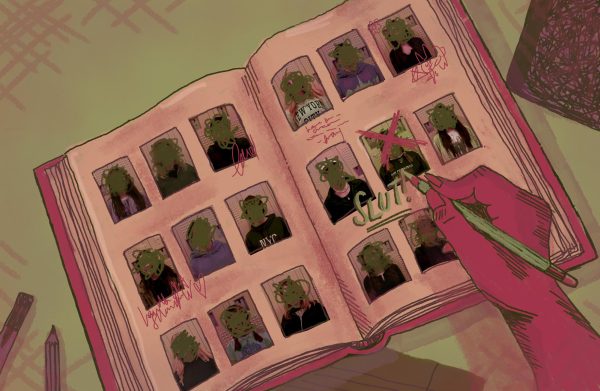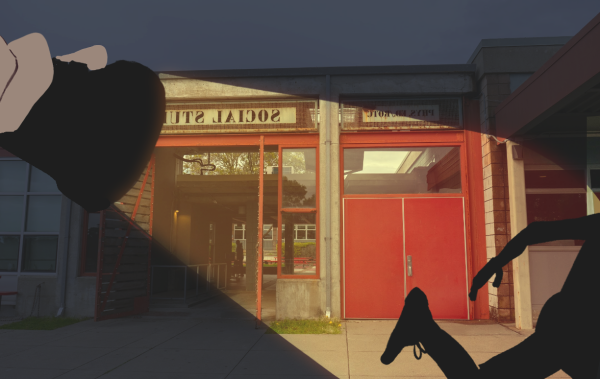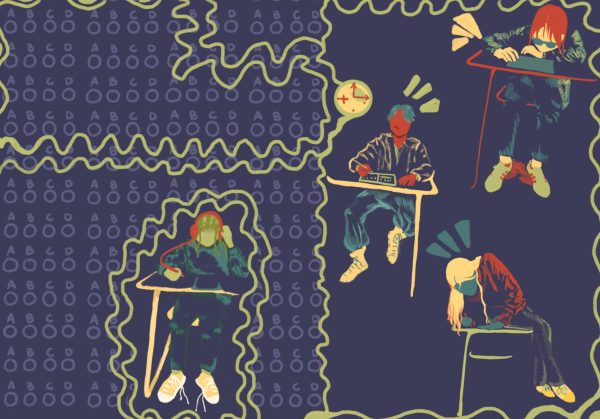Implementation of Study Skills course prompts mixed reactions
When freshman Alex Mangot finally arrives home after a full day of classes, he slumps into his bedroom, exhausted. Instead of resting, however, he needs to immediately start his homework in order to have enough time to finish his assignments, eat, and go to bed on time. After Study Skills became a class expected for all freshmen to take, most freshmen, including Mangot, don’t have any free blocks. With a full schedule, he doesn’t have time to complete his school work during the day, and wishes he could have a free block to work on his assignments.
During the fall semester of 2021, the percentage of Lowell freshmen with failing grades more than tripled from previous years. Though it is still debated whether this was due to Lowell’s implementation of the lottery admissions system or learning gaps from online schooling, Lowell’s administration agreed that all incoming freshmen needed greater support in their transition to high school. Beginning in the 2022-2023 school year, this extra support came in the form of a required semester-long study skills course, which was intended to help ninth graders learn the skills needed to succeed in high school. However, it has garnered negative opinions from freshmen.
It’s something they can use daily all the time that they can apply to their lives both in and out of an academic setting
The Study Skills class is designed to teach ninth graders academic skills, including note taking, test taking, organization, and time management. In instructor Sarah Wong’s class, study skills are broken into two categories: hard skills, like binder organization, and soft skills, like goal setting, accountability, and self advocacy. She views the course as a practicum class, where students learn by directly applying the skills they were taught to their other classes. “It’s something they can use daily all the time that they can apply to their lives both in and out of an academic setting,” Wong said. Students’ progress is measured through “system checks,” where Wong checks students’ notes, binders, and what they’re currently working on. While she has certain requirements about what supplies and organization systems students should use, her ultimate goal is that students are able to adapt the frameworks they learn to their personal needs and preferences.
According to Wong, Study Skills was implemented as a result of both the pandemic and the lottery admissions system. “We were finding that in how prepared students were for the rigors of Lowell, there was a big gap,” Wong said. The study skills course was a way to ensure that students would have access to the same academic support and foundational skills to be on a level playing field.
Some freshmen believe they were able to learn useful skills from the course. According to a December 2022 survey conducted by The Lowell of 10 randomly selected freshman registries, 28 percent of students reported finding the course very or extremely helpful. Many survey respondents cited learning things like time management that could be implemented in future classes. “This class has given me good habits and organization systems,” one respondent reported. “It’s helped me understand how I learn better and I’ve learned a lot of strategies to improve my learning process,” another said.
However, many others have negative opinions about the class’ effectiveness. Freshman Natalia Reis took the class during the fall semester and saw the class as extra work, as she had to switch from her preferred note-taking method to taking Cornell notes for her classes. With the addition of Study Skills, Reis, like most freshmen, had a full schedule of seven classes. “I definitely would have preferred an off block last semester,” she said. Survey respondents reported learning topics they were already familiar with, and receiving excessive work on top of their regular load. “I just learned things I already knew about, so it wasn’t that helpful,” one respondent reported. “I think it just gave me a lot more work that stressed me out more,” another said.
It’s just another thing I have to worry about on top of all my classes for something that I feel doesn’t really benefit me much
Many students are also frustrated that the course takes time away from other valuable activities, such as tutoring. Mangot was assigned to the class for the spring semester and tried to drop it to get tutored during that time instead, but wasn’t allowed to. According to Mangot, taking the study skills course in the spring semester after already having gone through the fall semester is less impactful. “It’s just another thing I have to worry about on top of all my classes for something that I feel doesn’t really benefit me much,” Mangot said. He wishes that the administration could have explained their rationale for students taking the course, in addition to being more flexible about not taking the class, since it is not a graduation requirement. Many survey respondents believe having a free block would have been more beneficial. “I would much rather have study hall or go home to do my homework,” one respondent said.
After the course’s inaugural semester, students’ frustrations are evident to Lowell’s administration. According to assistant principal Jan Bautista, the administration “hears loud and clear” that Study Skills is not serving its intended purpose of helping the ninth graders. Because of this feedback, the administration is trying to find better ways to assist ninth graders, including math and literacy support classes to make up for learning loss during the pandemic. “If you think about our students that had their middle school years gone, those are some really concrete building times that didn’t happen for a lot of our students,” Bautista said. “So we’re trying to figure out how to best support them.”
Study Skills might not have met expectations, but a method to help incoming freshmen with academics is still needed. While administrators search for a more comprehensive solution, final plans are still up in the air. “Until we get the budget and have an idea of what the solid course offerings will be next year, we’re still trying to figure it out,” Bautista said.

Victoria Pan is a senior who joined The Lowell in the spring of 2022. When she isn't stressing about school, she is usually traveling, reading, or drinking boba. Victoria especially loves visiting national parks (in any country) and Disneyland (where she ends up walking more than she does in the national parks).

Samir is a fun-loving photographer who enjoys long walks on the beach and quiet contemplation with his two Burmese pythons (his muscles)


